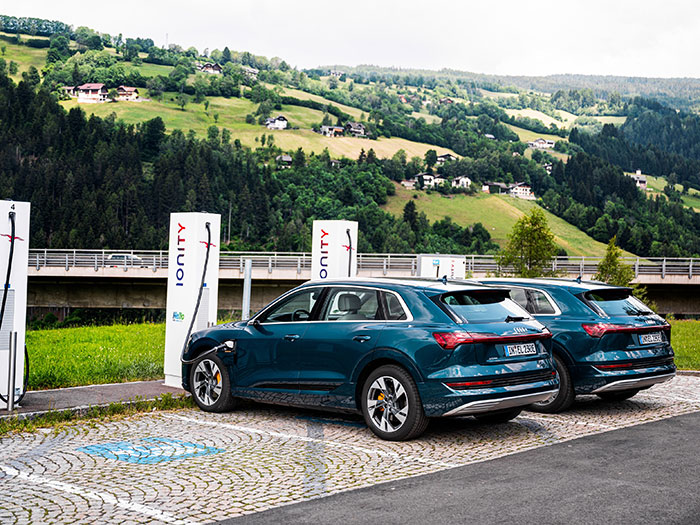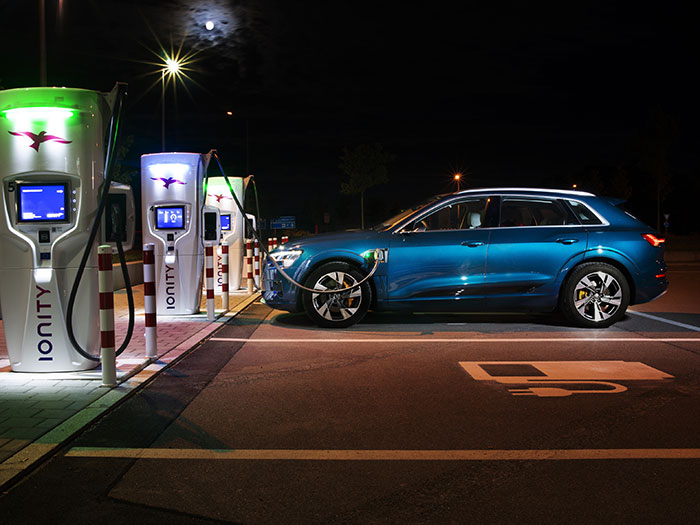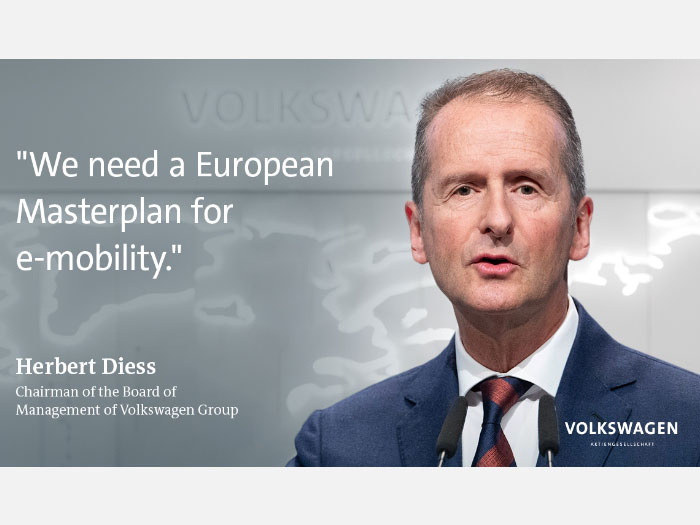A European plan for e-mobility: Volkswagen Group's vision
Volkswagen Group CEO Herbert Diess is demanding binding expansion plans for all the countries in the European Union, to expand the charging infrastructure and accelerate the coal phase-out.
Developing sustainable electric mobility in Europe depends not only on the availability of increasingly efficient, affordable cars with greater range - but also on the accessibility of the charging infrastructure.
That’s why Volkswagen Group CEO Herbert Diess is stressing the importance of speeding up the development of the infrastructure for electric vehicles all over Europe. “We need a European Masterplan for e-mobility,” Diess said recently, during an event in Brussels.
The role of the European Union

The European Union must provide binding expansion plans for each individual member state and supporting those countries that have the biggest catch-up process ahead of them. Electric cars could really establish themselves on the market only if there were sufficient charging points.
The Netherlands is particularly progressive in this respect, while Germany is only in the middle of the field, as are the majority of other European countries. “The Netherlands has almost 20 charging points per 100 kilometres of road”, Diess said.“In Germany it is less than three. A million charging stations is not a moon-shot project”.
Reducing CO2‚

Diess praised the Green Deal announced by EU Commission President Ursula von der Leyen, with investments of around one trillion euros, as ambitious. This means it all the more important to take immediate concrete steps to make the Volkswagen Group fleet climate-neutral by the year 2050.
“We need one clear CO₂ price for all sectors, a price that is motivating us as industry and consumers in a better way – to reduce our carbon footprint more powerfully.We have to be more courageous on this”, said Diess.
Quitting coal

Diess described the current high share of coal-fired power generation in Eastern Europe and Germany as the “biggest problem” on the path to climate neutrality. “Seven of the ten largest CO₂ emitters in Europe are German coal-fired power plants”, he said. Up to now, the European Union has treated electricity as a “national patchwork quilt. This must change”.
Diess concluded by saying: “We need a European coal exit plan with binding phase-out dates for each member state. Otherwise we have no chance to reach our climate goals. The energy for electric vehicles must be CO₂-free!”
Volkswagen Group's vision
Against this background, Diess referred to the Volkswagen Group’s announcement that it intends to bring CO₂ emissions of its fleet to zero by 2050, with a 30% reduction already in place by 2025. The Group is investing around 33 billion euros in electric mobility over the next few years.
However, the switch to electric mobility will be difficult to achieve if the power supply continues to rely primarily on coal - meaning that it will not be possible to significantly reduce carbon dioxide emissions.
Source: Volkswagen AG
